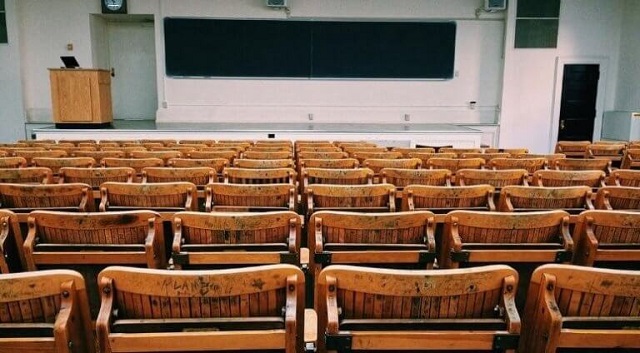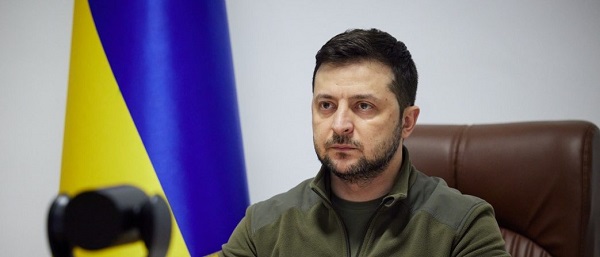Opinion
Don’t give campus censors more power — they’ll double down on woke agenda

From the MacDonald Laurier Institute
By Bruce Pardy
Expression on campus is already subject to the laws of the land, which prohibit assault, defamation, harassment, and more. The university has no need for a policy to adopt these laws and no power to avoid them.
Last Saturday, Liz Magill resigned as president of the University of Pennsylvania. Four days earlier she had testified before Congress about campus antisemitism. Does calling for the genocide of Jews violate Penn’s code of conduct? “It is a context-dependent decision,” Magill equivocated. Billionaire hedge fund manager Bill Ackman launched a campaign calling for Magill to step down, along with the presidents of Harvard and MIT, who testified alongside her. Their reluctance to condemn revealed a double standard. That double standard, like the titillation of a scandal, has distracted from the bigger mistake. Universities should not police the content of expression on their campuses.
In 2019, I invited a member of Penn’s law school to give a lecture at Queen’s University, where I teach. Some students at my law school launched a petition to prevent the talk. To their credit, administrators at Queen’s did not heed the call, even though the professor I invited, Amy Wax, had become a controversial academic figure. In 2017, she championed “bourgeois culture” in an opinion essay in the Philadelphia Inquirer (with Larry Alexander of the University of San Diego). The piece suggested that the breakdown of post-Second World War norms was producing social decay. Some cultures are less able than others, it argued, to prepare people to be productive citizens. Students and professors condemned the column as hate speech. It was racist, white supremacist, xenophobic and “heteropatriarchal,” they said.
Wax was not deterred. She continued to comment about laws and policies on social welfare, affirmative action, immigration, and race. When she was critical of Penn Law’s affirmative action program, the dean barred her from teaching first-year law students. In June 2023, he filed a disciplinary complaint against her, seeking to strip her of tenure and fire her. It accused Wax of “intentional and incessant racist, sexist, xenophobic and homophobic actions and statements.” The complaint alleged that she had violated the university’s non-discrimination policies and Principles of Responsible Conduct. But unlike others, allegedly, on Penn’s campus, Wax had not called for, nor was she accused of calling for, violence or genocide. She continues to wait for a decision in her case.
For years, North American universities have embraced certain political causes and blacklisted others. To stay out of trouble, choose carefully what you say. You can accuse men of toxic masculinity, but don’t declare that transgender women are men. You can say that black lives matter, but not that white lives matter too. Don’t suggest that men on average are better at some things and women at others, even if that is what the data says. Don’t attribute differential achievement between races to anything but racism, even if the evidence says otherwise. Don’t eschew the ideology of equity, diversity, and inclusion if you want funding for your research project. You can blame white people for anything. And if the context is right, maybe you can call for the genocide of Jews. Double standards on speech have become embedded in university culture.
Universities should not supervise speech. Expression on campus is already subject to the laws of the land, which prohibit assault, defamation, harassment, and more. The university has no need for a policy to adopt these laws and no power to avoid them. If during class I accuse two colleagues of cheating on their taxes, they can sue me for defamation. If I advocate genocide, the police can charge me under the Criminal Code.
In principle, universities should be empty shells. Professors and students have opinions, but universities should not. But instead, they have become political institutions. They disapprove of expression that conflicts with their social justice mission. Speech on campus is more restricted than in the town square.
The principle that universities should not supervise speech has a legitimate exception. Expression should be free but should not interfere with the rights of others to speak and to listen. On campus, rules that limit how, when, and where you may shout from the rooftops preserve the rights of your peers. Any student or professor can opine about the Ukrainian war, but not during math class. Protesters can disagree with visiting speakers but have no right to shout them down. Such rules do not regulate the content of speech, but its time and place. If you write a column in the student newspaper or argue your case in a debate, you interfere with no one. The university should have no interest in what you say.
Penn donors helped push Magill out the door. In the face of rising antisemitism, more donors and alumni in the U.S. and Canada are urging their alma maters to punish hateful expression. They have good intentions but are making a mistake. They want universities to use an even larger stick to censure speech. Having witnessed universities exercise their powers poorly, they seek to give them more. Universities will not use that larger stick in the way these alumni intend. Instead, in the long run, they will double down on their double standards. They are more likely to wield the stick against the next Amy Wax than against woke anti-Semites.
The way to defeat double standards on speech is to demand no standards at all. Less, not more, oversight from universities on speech is the answer. If a campus mob advocates genocide, call the police. The police, not the universities, enforce the laws of the land.
Bruce Pardy is executive director of Rights Probe and professor of law at Queen’s University.
Daily Caller
Zelenskyy Under Siege As Top Aide Resigns After Home Raided In Major Corruption Scandal


From the Daily Caller News Foundation
Ukrainian President Volodymyr Zelenskyy’s chief of staff, Andriy Yermak, resigned Friday after his home was raided in an ongoing corruption probe that threatens to undermine Zelenskyy’s grip on power during wartime.
Ukrainian authorities on Friday raided the home of Andriy Yermak, Zelenskyy’s chief of staff and right-hand man, as part of a sweeping corruption probe investigating Zelenskyy’s possible involvement in a $100 million scheme to defraud the nation’s atomic energy company. Yermak’s resignation comes at a time when Zelenskyy is under increasing pressure to accept a U.S.-brokered peace deal to end Ukraine’s war with Russia.
The investigation has shaken Ukrainian confidence in Zelenskyy’s administration while Russian strikes continue to rock critical infrastructure. So far, Russia has not commented on the new proposed peace deal.
As a nonprofit, we are dependent on the generosity of our readers.
Please consider making a small donation of any amount here.
Thank you!
Zelenskyy first rose to power on an anti-corruption platform in the 2019 elections, which propelled him into the international spotlight. He has enjoyed a positive global reputation during the three-year war with Russia and has been hailed by numerous Western leaders as a beacon of democracy against autocratic Russia.
Zelenskyy has so far worked with the U.S. on the proposed peace agreement, but has also expressed major reservations about what it will mean for his country. In a public address on November 21, Zelenskyy said the plan puts Ukraine in the position of “either losing its dignity or the risk of losing a key partner.”
Despite the prospect of losing U.S. intelligence sharing and weapons if Ukraine doesn’t accept the deal, Zelenskyy has been shoring up European alliances and international support, most recently signing a deal with France to obtain 100 Rafale jets for its air force. The deal also included anti-air equipment, drones and other munitions.
The Ukrainian Ministry of Foreign Affairs did not immediately respond to the Daily Caller News Foundation’s request for comment.
Alberta
READ IT HERE – Canada-Alberta Memorandum of Understanding – From the Prime Minister’s Office

From Energy Now
Prime Minister of Canada
-

 Alberta4 hours ago
Alberta4 hours agoFrom Underdog to Top Broodmare
-

 Energy1 day ago
Energy1 day agoPoilievre says West Coast Pipeline MOU is no guarantee
-

 Energy1 day ago
Energy1 day agoWill the New West Coast Pipeline MoU Lead to Results? Almost Certainly Not According to AI
-

 Alberta1 day ago
Alberta1 day agoWest Coast Pipeline MOU: A good first step, but project dead on arrival without Eby’s assent
-

 Carbon Tax1 day ago
Carbon Tax1 day agoCanadian energy policies undermine a century of North American integration
-

 Alberta1 day ago
Alberta1 day agoCarney forces Alberta to pay a steep price for the West Coast Pipeline MOU
-

 Alberta1 day ago
Alberta1 day agoAlberta and Ottawa ink landmark energy agreement
-

 Energy16 hours ago
Energy16 hours agoOttawa and Alberta’s “MOU” a step in the right direction—but energy sector still faces high costs and weakened competitiveness


